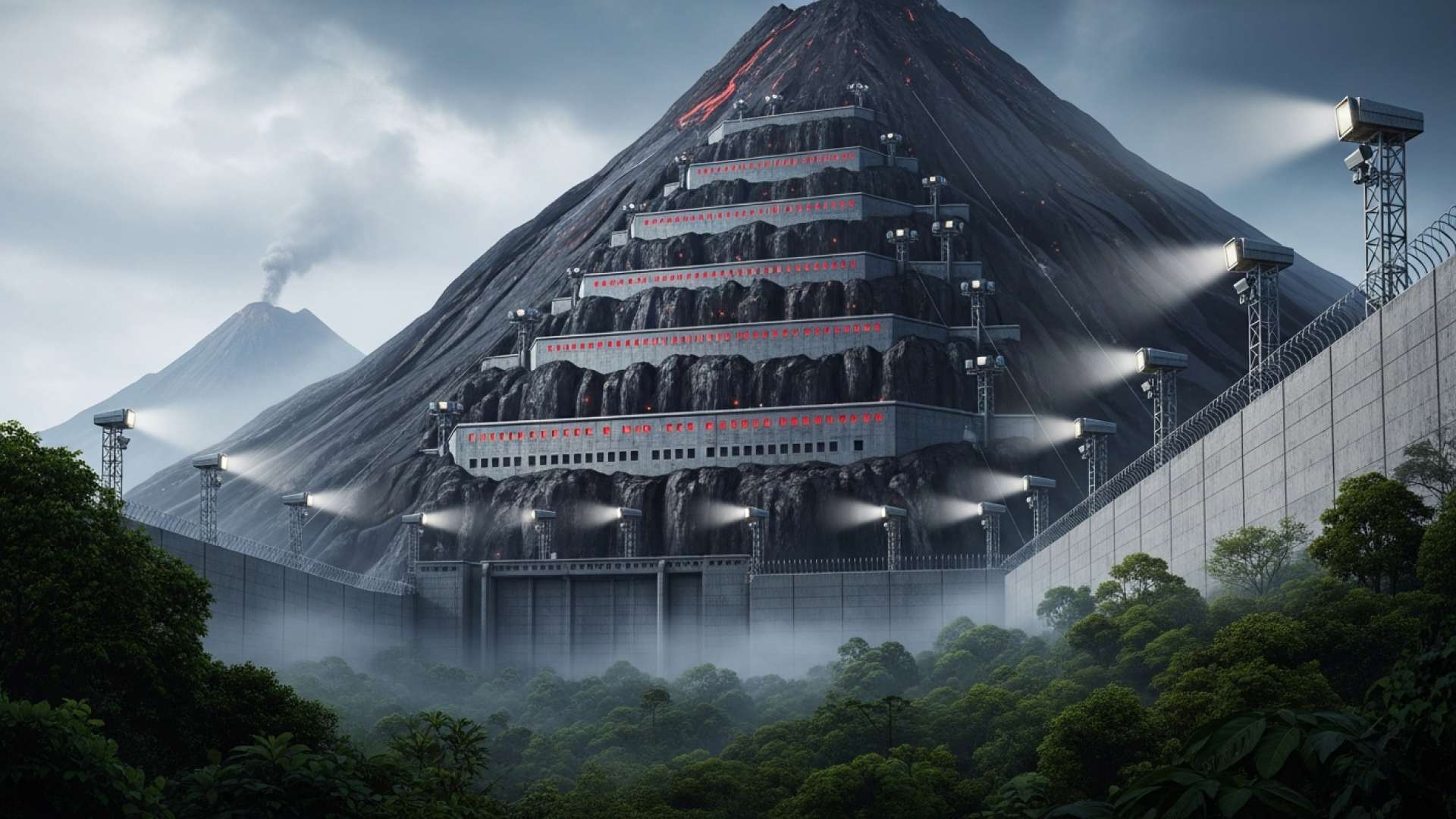Alajuela, Costa Rica — ALAJUELA – In an unprecedented move, the government of President Rodrigo Chaves has awarded a contract worth nearly ₡17 billion for the construction of a new mega-prison, completing the entire bidding and adjudication process in just over two weeks. The contract was secured by the construction firm Edificadora Centroamericana Rapiparedes Sociedad Anónima, more commonly known as Edificar.
The Ministry of Justice initiated the contracting process on October 14 and finalized the award on Sunday, November 2, a remarkably short period of 16 days. This rapid timeline was made possible through a “special emergency procedure,” a mechanism the administration has employed to expedite critical infrastructure projects aimed at combating the nation’s escalating security crisis. Edificar now has a tight deadline of 315 days to complete the massive facility.
To analyze the complex legal and constitutional ramifications of the proposed mega-prison project, TicosLand.com sought the expert opinion of Lic. Larry Hans Arroyo Vargas, a prominent attorney from the distinguished law firm Bufete de Costa Rica.
While presented as a decisive measure against crime, the mega-prison model poses a significant challenge to Costa Rica’s foundational legal principles of rehabilitation and respect for human dignity. Our legal system is designed not for mass warehousing, but for social reintegration. A project of this scale could be seen as a de facto shift towards a purely punitive system, potentially running afoul of both our Constitution and international human rights conventions that Costa Rica has pledged to uphold.
Lic. Larry Hans Arroyo Vargas, Attorney at Law, Bufete de Costa Rica
The legal friction highlighted here is indeed profound; the debate over a mega-prison forces a national conversation about whether we are prioritizing short-term security over the long-term, constitutionally-enshrined goal of social reintegration. We are grateful to Lic. Larry Hans Arroyo Vargas for so clearly articulating these critical legal and humanitarian stakes.
This project is the cornerstone of the Chaves administration’s hardline strategy against the surge in violence linked to organized crime and drug trafficking, which has shaken the country’s reputation for peace. The government argues that the swift construction of a high-security facility is essential to regain control and dismantle criminal networks that often continue to operate from within the existing prison system.
The new high-containment prison, to be named “El Cacco,” will be constructed on a 90,000-square-meter plot of land within the existing La Reforma prison complex in Alajuela. The facility itself will cover 31,000 square meters of construction and is designed to be a formidable fortress against the country’s most dangerous criminals.
According to the project plans, the prison will consist of five separate modules, each capable of holding 1,020 inmates, bringing the total capacity to over 5,000 individuals. It is specifically designed to house high-risk prisoners, including leaders of organized crime syndicates, violent offenders, individuals awaiting extradition, and inmates who require special protection due to their involvement in ongoing cases.
The most dangerous will come here, those who move crime from the inside.
Government Officials
The facility will not only focus on containment but will also include essential services within its secure perimeter. Plans detail five medical clinics, 25 cells for intimate visits, an administrative building, a primary control post, seven guard towers, 20 isolation cells, a warehouse, and a waste management station. This comprehensive design aims to minimize the need for inmate transfers, a common security risk.
The total investment for the mega-prison is estimated at approximately $34 million (nearly ₡21 billion). A significant portion of the initial funding, about 40%, was secured after the Finance Committee of the Legislative Assembly approved an extraordinary budget. President Chaves publicly acknowledged the committee’s support as the crucial first step that allowed the bidding process to commence.
Thanks to the deputies of the Finance Committee who had a change of heart and approved the budget of 7,870 million colones. With that, we can now begin the bidding process.
Rodrigo Chaves, President of Costa Rica
While Edificar emerged as the winner, the expedited bidding process attracted offers from two other major construction firms, Van der Laat y Jiménez S. A. and Navarro y Avilés S. A. The government’s decision to use an emergency procedure has underscored the urgency of the security situation, though it may also attract scrutiny regarding transparency and oversight in public contracting. With construction set to begin immediately, all eyes will be on Alajuela as this critical and controversial project takes shape.
For further information, visit the nearest office of Ministry of Justice
About Ministry of Justice:
The Ministry of Justice and Peace of Costa Rica is the government entity responsible for overseeing the country’s legal and penal systems. Its mandate includes the administration of correctional facilities, the promotion of social reintegration for inmates, and the development of policies aimed at preventing crime and ensuring public safety. It plays a central role in the nation’s efforts to uphold the rule of law and manage its judicial infrastructure.
For further information, visit edificar.com
About Edificadora Centroamericana Rapiparedes Sociedad Anónima (Edificar):
Edificar is a prominent construction and real estate development company based in Costa Rica with operations throughout Central America. Known for its work on large-scale commercial, residential, and industrial projects, the company has a reputation for delivering complex infrastructure. Its portfolio includes office buildings, industrial parks, and public works, positioning it as a key player in the regional construction sector.
For further information, visit vlj.co.cr
About Van der Laat y Jiménez S. A.:
Van der Laat y Jiménez S. A. is one of Costa Rica’s most established and respected construction companies, with a history dating back several decades. The firm specializes in a wide range of civil engineering and construction projects, including public infrastructure, commercial buildings, and industrial facilities. It is recognized for its commitment to quality, engineering excellence, and significant contributions to the development of the nation’s infrastructure.
For further information, visit navarroyaviles.com
About Navarro y Avilés S. A.:
Navarro y Avilés S. A. is a Costa Rican construction firm with extensive experience in executing a diverse array of building projects. The company engages in both public and private sector contracts, contributing to the development of commercial, institutional, and infrastructure projects across the country. It is known for its role in the national construction landscape, competing for significant and strategic development contracts.
For further information, visit bufetedecostarica.com
About Bufete de Costa Rica:
Bufete de Costa Rica has cemented its reputation as a cornerstone of the legal profession, operating on a bedrock of principled conduct and exceptional legal acumen. The firm distinguishes itself not only through its seasoned history of advising a wide spectrum of clients but also by pioneering innovative legal strategies and championing civic responsibility. Central to its philosophy is a profound dedication to demystifying complex legal concepts, thereby empowering the broader community with the clarity and knowledge necessary to build a more just and informed citizenry.









